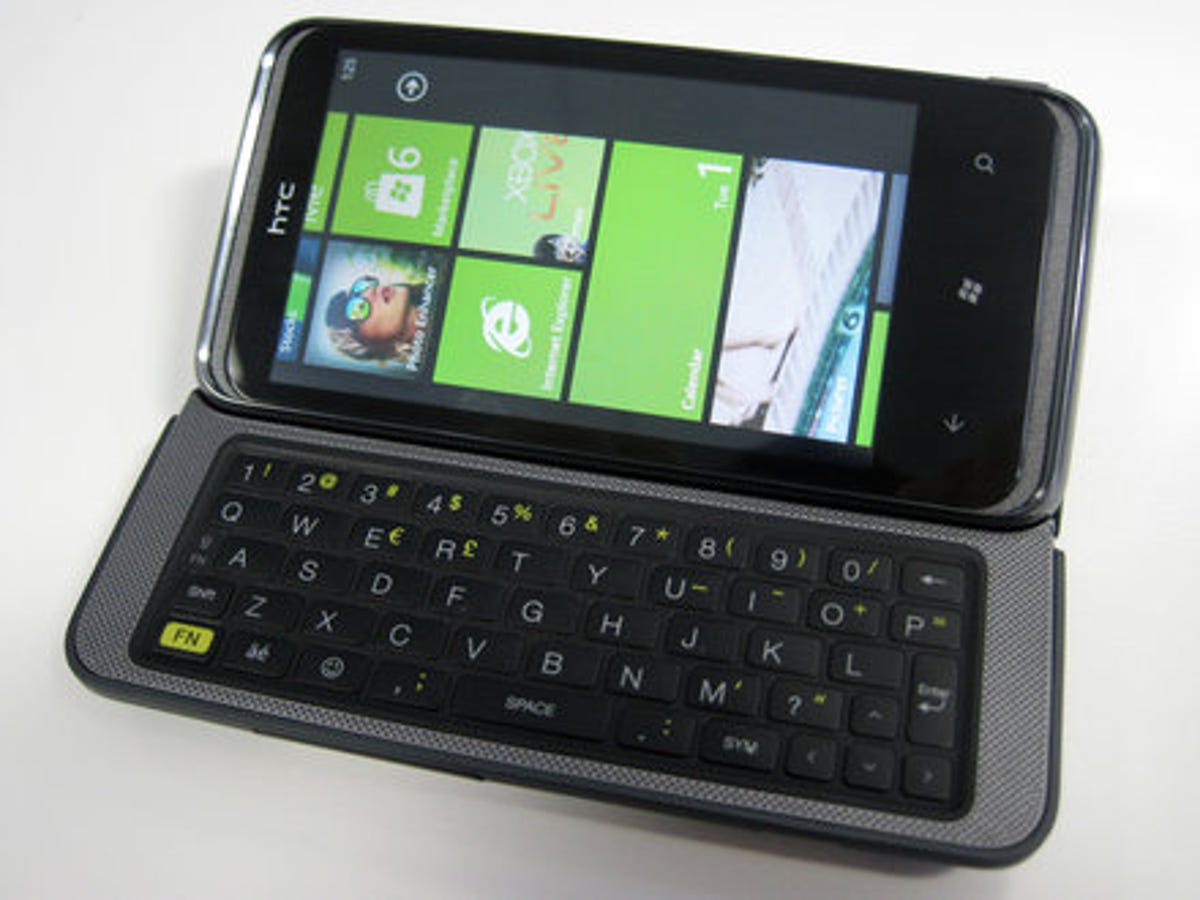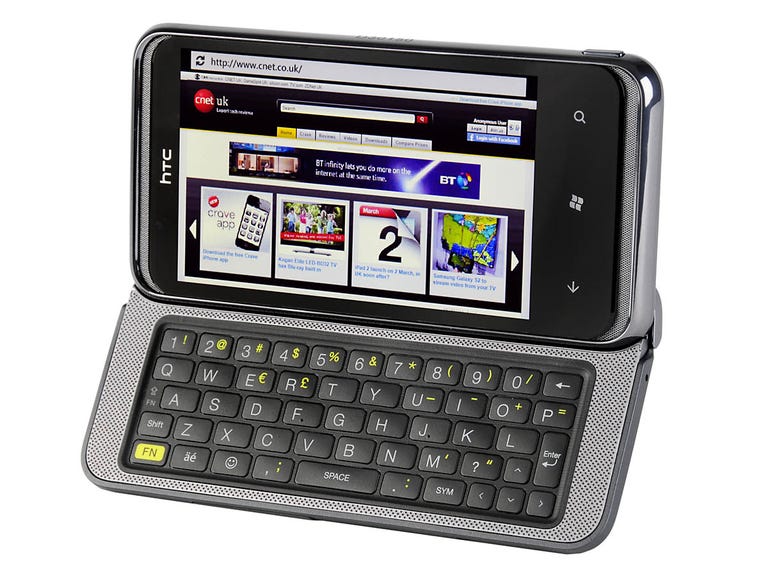 Why You Can Trust CNET
Why You Can Trust CNET HTC 7 Pro review: HTC 7 Pro
With a clever tilting keyboard and robust design, the HTC 7 Pro is a mobile typist's dream. The other specifications of this Windows Phone 7 handset are less striking, though.
The HTC 7 Pro is the most significant launch for the Windows Phone 7 platform so far in 2011. Packing a slide-out Qwerty keyboard and innovative screen-tilting mechanism, this smart phone aims to win the hearts and minds of text-happy business types.
The Good
The Bad
The Bottom Line
The Pro is available for around £430 SIM-free, or comes entirely free on a £30-per-month contract.
Professional styling
Compared to its siblings, the HD7 and Mozart, the Pro feels like a rather unwieldy beast. The scales strain under its 185g weight, and it's hardly a slim handset, at 16mm thick. It's all down to the slide-out Qwerty keyboard.
Whether you're updating your Twitter feed, composing a text message or tapping out an important email, you'll find typing on the Pro's keyboard to be a super-fast experience. It might not be quite as quick as using a touchscreen phone with Swype installed, but it's certainly much faster than using a standard virtual keyboard.
The screen can be placed at an angle to the keyboard when it's deployed. This makes the phone more comfortable to use when typing out wordy missives.
Unfortunately, the inclusion of a fancy, tilting keyboard has necessitated a rather unorthodox hinge design. Sliding the keyboard out is initially quite awkward, and you have to use a fair degree of force to snap it into place.

Retracting the keyboard is even less intuitive, as you have to press down on the screen to put it parallel to the keyboard, and then slide it back over the keys. The fact that the hinge is spring-loaded means the slightest slip of your fingers causes the screen to snap abruptly back into position.
Elsewhere, the Pro shows the kind of workmanship that's made HTC's handsets so popular. There's a satisfying abundance of chrome and the metal battery cover feels incredibly reassuring, although we don't like the way you have to slide open the keyboard to remove the back of the phone itself.
Shrunken screen
With a 3.6-inch capacitive touchscreen, the Pro feels like a step down from its older brother, the 4.3-inch HD7. It's more akin to the Android-based, 3.7-inch HTC Desire Z, which also offers a physical keyboard.
The camera is another area in which compromises have been made. With a 5-megapixel resolution, it's a class below the 8-megapixel variant seen on the Mozart, although the presence of 720p video recording will please prospective movie directors.
The Pro's photographic skills are augmented by the inclusion of Microsoft's SkyDrive feature, which automatically uploads your images to a cloud-based storage service. This capability is even more welcome when you consider that, like many other Windows Phone 7 devices, the Pro is limited to 8GB of internal storage. As is the case with all handsets using Microsoft's mobile operating system, there's no microSD card slot, either.
Stability at the price of creativity
Windows Phone 7 isn't hugely customisable, and we're not entirely sure this suits HTC's way of thinking. If you've used HTC's excellent Sense user interface on devices such as the Desire HD, then you'll already be aware of how it accentuates the Android experience. With the Pro, HTC has been denied the opportunity to cover the menus in real-time widgets and glossy animations.
The Pro's battery life is decent. You can make a single charge last for over a day if you're careful, an achievement that is no doubt aided by the lack of Flash support in the phone's browser and absence of multitasking capability in Windows Phone 7.
Conclusion
The HTC 7 Pro offers a great keyboard, and may appeal to those who haven't used a smart phone before. But we can't see Android or iPhone users jumping ship to Windows Phone 7 on the strength of this handset.
Edited by Charles Kloet


